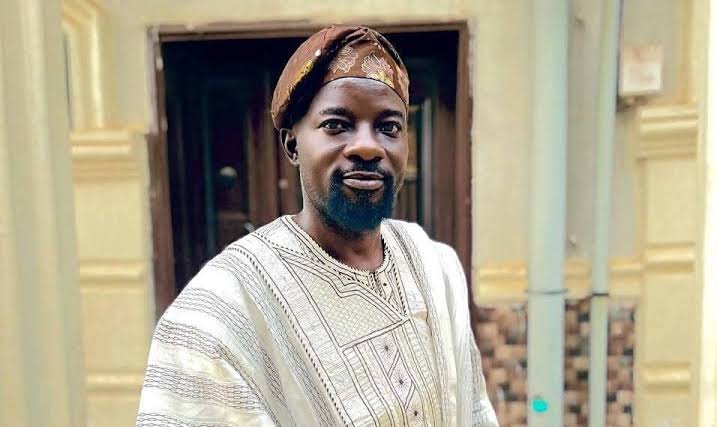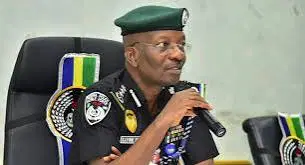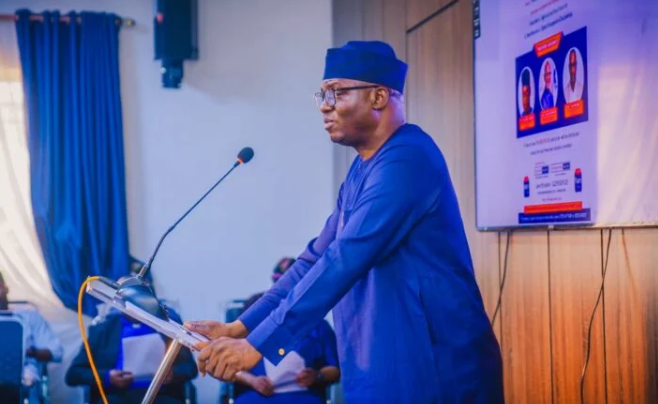A British investor and the Chief Executive Officer of Hinckley E-Waste Recycling Ltd, Adrian Clews on Wednesday said that Nigeria, coming after South Africa is the second highest producer of electronic waste in Africa.
Clews said that the country is responsible for churning out 200,000 metric tonnes of electronic waste which is one of the most toxic wastes around the world.
He explained that with the support of Manufacturing Africa, an initiative of UK government, a $5m Lithium-ion and lead-acid battery recycling plant is being established in the state to turn the threat posed by these toxic wastes into a thriving business creating at least 100 direct jobs.
Clews disclosed this at a press briefing organised by the state government at the Olusegun Osoba Press Centre, Governor’s Office, Oke-Mosan, Abeokuta.
The media engagement had in attendance, the Commissioner for Environment, Mr Ola Oresanya, the Commissioner for Commerce, Trade and Investment, Mr Adebola Sofela, Ms. Sola Arobieke, the Director General of Ogun State Investment Promotion and Facilitation Agency as well as the British High Commissioner to Nigeria, Richard Montgomery
Electronic waste is one of the most toxic wastes in the world and Nigeria is the second highest producer of electronic waste in Africa, coming second after South Africa.
Clews said, “Nigeria generates electronic wastes of over 200,000 tonnes every year and these are left on the dump sites across the country which poses a significant threat to the health of the people and the environment.
“So at Hinckley, it was an excitement to take it upon ourselves to establish Africa’s first Lithium battery recycling plant here in Ogun state and which is supported by Manufacturing Africa under the British government.
“The lead in the battery is a heavy metal that is quite dangerous to the health of the people, unfortunately, there is a large informal sector that are recycling these batteries, we need to raise the standards considerably and that is one of the reasons for the investment.
“The $5m investment with state of the art facilities is expected to have been completed within the next 12 months.”
Commissioner for Environment, Mr Ola Oresanya, lauded the initiative saying that the state has always been in the forefront of managing productively its environmental waste.
Oresanya said for instance, the state is the headquarters of recycling in Nigeria recycling more than 1400 metric tonnes of plastic bottles on a daily basis, with about four big factories that are into such business.
He added that “For ferrous and non-ferrous metals, we recycle close to 1300 tonnes in a day, the companies are around the Sagamu-Ogijo axis of the state and for papers, we do about 1400 metric tonnes of that as well. We have about 780 people who are aggregating into this venture and it has continued creating jobs”
He disclosed that there are already seven companies that are into recycling of batteries in the state assuring Hinckley E-Waste of necessary support that will enhance their successful operation in the state.
The British High Commissioner said that the establishment of the recycling company is one way for the UK government to invest in efforts to make life better for the people.
Montgomery said that the British government would always invest in opportunities that could be explored in the country to advance its socio-economic development.
He noted that his country would like to invest in energy, technology, tertiary education, agricultural processing, and also explore how to find more United Kingdom-linked companies to invest in the State, adding that discussions are ongoing with the state team on how to proceed in the coming year.
The Commissioner for Commerce, Trade and Investment, Adebola Sofela said that the government would continue to create an enabling environment and improve on ease doing business to facilitate more investment both within and outside the country.
Advertisement





